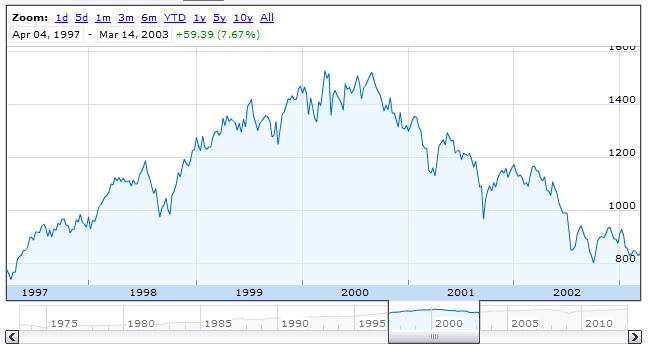By Jack Kim
SEOUL (Reuters) - North Korea said on Saturday it was entering a "state of war" with South Korea, but Seoul and its ally the United States played down the statement as tough talk.
Pyongyang also threatened to close a border industrial zone, the last remaining example of inter-Korean cooperation which gives the impoverished North access to $2 billion in trade a year.
The United States said it took Pyongyang's threats seriously but cautioned that the North had a history of bellicose rhetoric. Russia, another a permanent U.N. Security Council member, urged all sides to show restraint.
Tensions have been high since the North's new young leader Kim Jong-un ordered a third nuclear weapons test in February, breaching U.N. sanctions and ignoring warnings from North Korea's sole major ally, China, not to do so.
"From this time on, the North-South relations will be entering the state of war and all issues raised between the North and the South will be handled accordingly," a statement carried by the North's official KCNA news agency said.
KCNA said the statement was issued jointly by the North's government, ruling party and other organizations.
The Seoul government said there was nothing in the North's latest statement to cause particular alarm.
"North Korea's statement today ... is not a new threat but is the continuation of provocative threats," the South's Unification Ministry, which handles political ties with the North, said in a statement.
On Friday, Kim signed an order putting the North's missile units on standby to attack U.S. military bases in South Korea and the Pacific, after the United States flew two nuclear-capable stealth bombers over the Korean peninsula in a rare show of force.
U.S. officials described the flight as a diplomatic sortie aimed at reassuring allies South Korea and Japan, and at trying to nudge Pyongyang back to nuclear talks, though there was no guarantee Kim Jong-un would get the message as intended.
The two Koreas have been technically in a state of war since a truce that ended their 1950-53 conflict. Despite its threats, few people see any indication Pyongyang will risk a near-certain defeat by re-starting full-scale war.
There was no sign of unusual activity in the North's military to suggest an imminent aggression, a South Korean defense ministry official said.
CALLS FOR RESTRAINT
White House National Security Council spokeswoman Caitlin Hayden said North Korea's announcement followed a "familiar pattern" of rhetoric [ID:nL2N0CM05W].
Russia, which has often balanced criticism of North Korea, a Soviet-era client state, with calls on the United States and South Korea to refrain from belligerent actions, said a recurrence of war was unacceptable.
"We hope that all parties will exercise maximum responsibility and restraint and no-one will cross the point of no return," Grigory Logvinov, a senior Russian Foreign Ministry official, told Interfax news agency.
France said it was deeply worried about the situation on the Korean peninsula while NATO Deputy Secretary General Alexander Vershbow said the alliance hoped "that this is more posturing than a prelude to any armed hostilities."
China has repeatedly called for restraint on the peninsula.
The North has been threatening to attack the South and U.S. military bases almost on a daily basis since the beginning of March, when U.S. and South Korean militaries started routine drills that have been conducted for decades without incident.
Many in the South have regarded the North's willingness to keep open the Kaesong industrial zone, located just a few miles (km) north of the heavily-militarized border, as a sign that Pyongyang will not risk losing a lucrative source of foreign currency by mounting a real act of aggression.
The Kaesong zone is a vital source of hard currency for the North and hundreds of South Korean workers and vehicles enter daily after crossing the armed border.
"If the puppet traitor group continues to mention the Kaesong industrial zone is being kept operating and damages our dignity, it will be mercilessly shut off and shut down," KCNA quoted an agency that operates Kaesong as saying in a statement.
Closure could also trap hundreds of South Korean workers and managers of the more than 100 firms that have factories there.
The North has previously suspended operations at the factory zone at the height of political tensions with the South, only to let it resume operations later.
North Korea has canceled an armistice agreement with the United States that ended the Korean War and cut all hotlines with U.S. forces, the United Nations and South Korea.
(Additional reporting by Sung-won Shim and Jane Chung; Editing Rosalind Russell and Jon Boyle)
Source: http://news.yahoo.com/north-korea-says-enter-state-war-against-south-001304441.html
google earnings pat burrell hilary rosen grilled cheese allen west north korea missile don t trust the b in apartment 23




 Two years ago, Google’s Vic Gundotra keynoted the company’s 2011 I/O developer conference, and one of the big surprises of the day was the launch of Android@Home, Google’s attempt to corner the home-automation market. At the keynote, Google also showed the first prototype of what would later become the Nexus Q “social streaming media player” that it gave to every I/O 2012 attendee. Fast forward to today, just a few weeks before the next I/O, and home automation is still clunky and dominated by the same players as before, with the possible exception of Nest. Google has barely mentioned Android@Home since 2011. The Nexus Q never even made it to market after Google “postponed” it just before it was scheduled to launch. Unlike other Google products, both Android@Home and the Nexus Q currently live in no-man’s land where forgotten Google products wait before they are either resurrected or put out on the curb with the rest of its failed products at the next spring cleaning. While most neglected Google products disappear sooner or later, though, the Nexus Q, which got mostly negative reviews, still lives on an unlinked page on Google Play. The Nexus Q was Google’s first attempt at designing its own hardware, and while the Q was a great hardware product, it felt like it was intentionally held back by its software, which was extremely limited. The hardware still looks great today, so maybe it will make a return at I/O this year, but hopefully as a fully featured media player with app support that’ll let you run the majority of your Android apps on a TV. I don’t have very high hopes for this, but it’s definitely a possibility, given that its internals were essentially those of a high-end Android phone. When it “postponed” its launch and gave a free Q to everybody who pre-ordered one, Google said it did so because it wanted to make the Q better – and what better time to show how much it has improved it than at I/O 2013? The Nexus Q was just one piece of Google’s larger Android@Home home-automation vision. Android@Home was supposed to revolutionize home automation and turn Android into the operating system for your home. It would let you control everything from your heating system to your washer and dryer, alarm clock, lightbulbs (Google even had a partner for this “launch”), entertainment system and every other
Two years ago, Google’s Vic Gundotra keynoted the company’s 2011 I/O developer conference, and one of the big surprises of the day was the launch of Android@Home, Google’s attempt to corner the home-automation market. At the keynote, Google also showed the first prototype of what would later become the Nexus Q “social streaming media player” that it gave to every I/O 2012 attendee. Fast forward to today, just a few weeks before the next I/O, and home automation is still clunky and dominated by the same players as before, with the possible exception of Nest. Google has barely mentioned Android@Home since 2011. The Nexus Q never even made it to market after Google “postponed” it just before it was scheduled to launch. Unlike other Google products, both Android@Home and the Nexus Q currently live in no-man’s land where forgotten Google products wait before they are either resurrected or put out on the curb with the rest of its failed products at the next spring cleaning. While most neglected Google products disappear sooner or later, though, the Nexus Q, which got mostly negative reviews, still lives on an unlinked page on Google Play. The Nexus Q was Google’s first attempt at designing its own hardware, and while the Q was a great hardware product, it felt like it was intentionally held back by its software, which was extremely limited. The hardware still looks great today, so maybe it will make a return at I/O this year, but hopefully as a fully featured media player with app support that’ll let you run the majority of your Android apps on a TV. I don’t have very high hopes for this, but it’s definitely a possibility, given that its internals were essentially those of a high-end Android phone. When it “postponed” its launch and gave a free Q to everybody who pre-ordered one, Google said it did so because it wanted to make the Q better – and what better time to show how much it has improved it than at I/O 2013? The Nexus Q was just one piece of Google’s larger Android@Home home-automation vision. Android@Home was supposed to revolutionize home automation and turn Android into the operating system for your home. It would let you control everything from your heating system to your washer and dryer, alarm clock, lightbulbs (Google even had a partner for this “launch”), entertainment system and every other Online community be it Business Houses or Individuals, always on look out for improved or innovative strategy to increase their Twitter Followers. Normally this can be achieved from getting a package at cheaper cost from freelancers to increase the follower?s list; it only serves if you are happy with increasing follower?s list numbers.
Online community be it Business Houses or Individuals, always on look out for improved or innovative strategy to increase their Twitter Followers. Normally this can be achieved from getting a package at cheaper cost from freelancers to increase the follower?s list; it only serves if you are happy with increasing follower?s list numbers.

